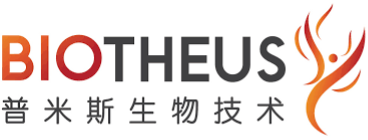Biotheus’s PD-L1/VEGF dual antibody is planned to be included in breakthrough therapeutic category and has reached a licensing cooperation of over US$1 billion
March 5, 2024
Source: drugdu
 535
535

Today (1st March), the official website of the Center for Drug Evaluation (CDE) of the NMPA announced that the PM8002 injection applied by Biotheus is planned to be included in the breakthrough therapy category, and the indication is the first-line treatment of inoperable locally advanced/recurrent metastatic triple-negative breast cancer with albumin-bound paclitaxel for combined injection. Public information shows that PM8002 is an anti-PD-L1/VEGF bispecific antibody independently developed by Biotheus. BioNTech has reached a cooperation agreement of more than US$1 billion with Biotheus to obtain the development, production and commercialization rights of this product worldwide (except Greater China).
PM8002 is a bispecific antibody drug candidate consisting of a humanized anti-PD-L1 mono-antibody (VHH) fused to an anti-VEGF-A IgG1 antibody containing an Fc-silent mutation. This design can enrich PM8002 molecules into the tumor environment and reduce the systemic side effects caused by systemic VEGF blockade.
According to an earlier press release fromBiotheus, PM8002 has carried out multiple phase II studies in China and has demonstrated active anti-tumor effects in multiple tumor types such as triple-negative breast cancer (TNBC), small cell lung cancer, cervical cancer, and non-small cell lung cancer. Triple-negative breast cancer has a higher degree of malignancy, is prone to recurrence, and has a lower 5-year survival rate than other subtypes. Compared with other subtypes of breast cancer, triple-negative breast cancer has higher PD-L1 expression and VEGF expression levels, and its disease characteristics are more suitable for immunotherapy and anti-VEGF treatment.
In December 2023, Biotheus announced the results of the Phase 1b/2 clinical safety and efficacy study of PM8002 combined with albumin-paclitaxel in the first-line treatment of locally advanced or metastatic triple-negative breast cancer at the San Antonio Breast Cancer Symposium (SABCS). This study was led by the team of Professor Wu Jiong and Professor Zhang Jian from Fudan University Cancer Hospital.
The study's efficacy data showed that as of October 8, 2023, 42 patients had received at least one efficacy assessment, and the median duration of patient drug exposure was 6.9 months (minimum 2.0 months, maximum 10.3 months). The overall objective response rate (ORR) during treatment was 78.6%, including 1 complete response (CR) and 32 partial responses (PR), of which 29 objective responses occurred at the first evaluation; the disease control rate (DCR) was 95.2%, and the median time from the start of treatment to remission (TTR) is 1.9 months. These data show that the PM8002 combined with albumin-paclitaxel regimen not only has a considerable ORR, but also has a rapid onset of effect. In addition, the median optimal percentage change of the patient's target lesions from baseline was -51.4%, reflecting the excellent tumor reduction effect.
Stratified analysis based on patients' PD-L1 expression levels showed that among 13 patients with PD-L1 comprehensive positive score (CPS) <1, the ORR and DCR of the PM8002 combined with nab-paclitaxel regimen were 76.9% and 100.0% respectively; Among the 25 patients with PD-L1 CPS≥1, the two data were 80.0% and 96.0% respectively; while among the 9 patients with PD-L1 CPS≥10, the ORR and DCR were both as high as 100%. As of October 8, 2023, 25 patients are still continuing treatment, and the median progression-free survival (mPFS) of the patients is 9.2 months. The latest research data as of December 8, 2023, shows that the patient’s mPFS is 13.96 months. The data is still maturing further.
Safety data showed that the incidence rate of treatment-related adverse events (TRAEs) was 100%, of which 38.1% were grade 3-4, and no grade 5 TRAEs were observed; the most common TRAEs included neutropenia (85.7%), leukopenia, Reduction (76.2%), anemia (71.4%) and proteinuria (40.5%); the incidence of immune-related adverse events (irAEs) was 31.0%, including hyperthyroidism, hypothyroidism and rash, and the incidence of grade ≥3 irAEs is 11.9%.
According to the conclusions drawn by the researchers, the PM8002 combined with albumin-paclitaxel regimen showed encouraging anti-tumor activity (effectiveness rate 78.6%, disease control rate 95.2%) and good safety in the first-line treatment of advanced triple-negative breast cancer. This Phase II study is ongoing and a Phase III trial is planned.
http://www.phirda.com/artilce_34319.html?cId=1&module=trackingCodeGenerator
Read more on
- Gusekirumab Injection Accepted by CDE, Multiple Pipelines Advancing Simultaneously March 4, 2026
- Yifan Pharmaceutical’s teriparatide injection has been accepted by the CDE (Center for Drug Evaluation), adding a new domestic player to the osteoporosis treatment field March 4, 2026
- //news.yaozh.com/archive/47318.html PD-1 sales surge March 4, 2026
- A major breakthrough! Roche’s oral BTK inhibitor achieves its third Phase III clinical trial victory, a game-changer in the multi-billion dollar MS (manufactured pharmaceuticals) market. March 4, 2026
- GB19 Injection Approved for Clinical Trials of Cutaneous Lupus Erythematosus March 4, 2026
your submission has already been received.
OK
Subscribe
Please enter a valid Email address!
Submit
The most relevant industry news & insight will be sent to you every two weeks.



